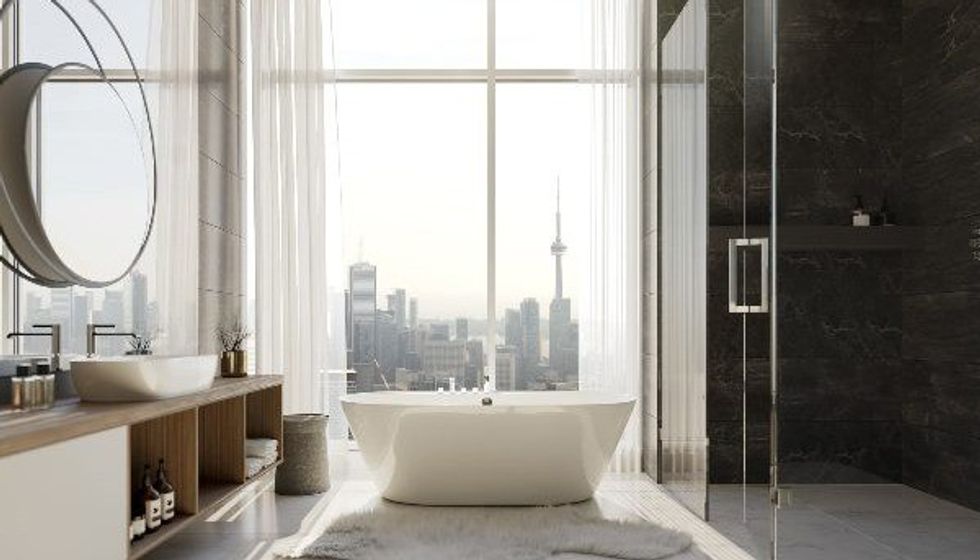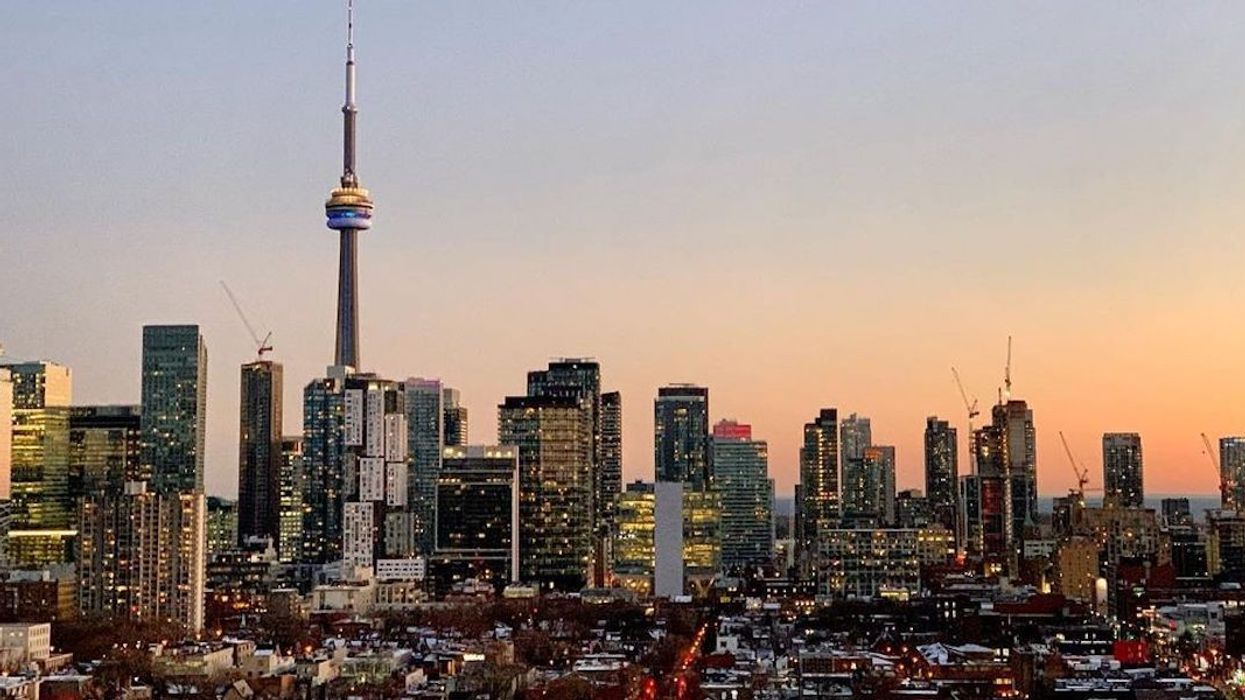It's well understood that when it comes to the various housing markets in Toronto, the sectors with increased personal and outdoor space -- such as ground-level homes on the city's edges -- have seen an influx of activity through the pandemic.
Conversely, tiny condos in the downtown core have attracted fewer buyers (up until recently, anyways).
But a topic that's been much less investigated over the past year is that of neighbourhood value. Indeed, it's not just only condos across from the Rogers Centre that have been garnering less attention as of late; some of Toronto's most luxe areas have lost significant value through the duration of COVID-19.
According to a new report from Strata, the neighbourhoods hardest hit during the pandemic have been The Annex, Bloor-Yonge, Yorkville, and Casa Loma. These neighbourhoods experienced value-losses of ~30%, ~12%, ~12%, and ~11% respectively. Creeping up in fifth place is the Bay Street Corridor, which saw a 6.31% decrease in value over the last year.
Of all five areas with the greatest declines, Bay Street is the only one that really fits that "downtown condo" descriptor. The others are on the cusp, at best.
READ: Following ‘Volatile’ Year, Demand for Rental Units Will Remain Strong in 2021
"After years of growth, Toronto’s luxury neighbourhoods suffered a setback in the past 12 months. When it comes to year-over-year value, some areas have dropped by as much as 30%. It’s a startling figure," says the report. "But not surprising given what we’ve seen throughout the province, as buyers move to traditionally-overlooked areas in search of cheaper prices and more space. Unfortunately, that means some of Toronto’s luxury neighbourhoods have taken a tremendous hit."
Neighbourhoods With Biggest Decline in Value Over Past 12 Months
1. The Annex: -29.96%
2. Bloor-Yonge: -11.98%
3. Yorkville: -11.79%
4. Casa Loma: -11.13%
5. Bay St. Corridor: -6.31%
The report explains reasons behind the luxury market's current happenings as similar to those the condo market saw through much of last year. That is: a shift of supply and demand. Citing "many" drivers" for the movement, the report offers the transference of Airbnb rentals to the long-term market, the loss of student renters in areas like The Annex and Bloor Yonge, as well as a lowering confidence in the desirability of a luxury home all as suggested contributing factors.
“I have investor clients who were once so proud to own a property in a luxury neighbourhood. But they had no idea a pandemic like this was going to hit and drive immigration out of the city. So now some of them have sold. For those who didn’t, they’re renting these places out for very cheap. That's why we’re seeing such low rents in some luxury areas,” says Sam Massoudi, a real estate agent at Strata.ca with investor clients in hard-hit luxury neighbourhoods.
For years, these pockets of the city had relied on "wealthier international students" as tenants and, while those students are attending Canadian schools from abroad, Massoudi has seen some of his clients forced to sell.
"[Adding to the above factors], of course, remote work is allowing buyers to look outside the downtown core," the report also says. (And, yes, "of course" is right).
“Buyers will often prioritize value over luxury when in a recessionary environment. Even those who have the means to purchase high-end properties are likely to hold off. Sometimes they worry that luxury might become devalued, resulting in a wait-and-see approach,” says Strata's Broker of Record, Robert Van Rhijn, who reportedly believes "a change in buyer thinking" is the real main driver.
Here, another parallel is drawn between the luxury market and the downtown condo market. While not mutually exclusive -- there are plenty of luxury units downtown -- it's generally accepted that a typical core condo is going to be [relatively] small, [relatively] expensive, and [relatively] close to all of downtown's amenities. Save for being small, luxury properties share these attributes: they're pricier than the average home, and they're bound to be located somewhere covetable, be that Yorkville with its shops, or Casa Loma with its views.
As such, would-be buyers are asking themselves: what's the point of shelling out for a place of prestige when much of what makes it special isn't accessible right now?
"When value is difficult to define, buyers stick to what they know — price and square footage," the report states.

Conversely, areas like Regent Park, Leslieville, and the Junction -- neighbourhoods the report dubs "non-luxury" -- are seeing the opposite trend. Prices (and value) are up in these pockets, where there's typically a lower-than-average price-per-square foot, alongside a "growing stock" of attractive units, including loft-style residences.
“The Junction and Regent Park are still gentrifying, so I’m not startled to see values increase as cautious buyers hunt for better deals," says Van Rhijn. "Look, even during lockdown periods, we’re seeing bidding wars in these areas."
Nearby ‘non-luxury’ neighbourhoods have increased in value
1. The Junction: +11.33%
2. Leslieville/South Riverdale: +5.16%
3. Regent Park: +5.67%
What's left to ponder, then, is how long this flip-of-the-script will last. Insights may be found in predictions surrounding those aforementioned contributing factors: the comeback of Airbnb short-term rentals, the time when International students return, and an increased confidence in luxury homes' desirability. Each of these attributes will, perhaps slowly but certainly surely, find recovery through the city's healing at large.
Still hanging on the sidelines, however, are those changes in "buyer thinking." With the return-to-office's play-out still ambiguous, and many people confident they'll be spending a good chunk more time working from home no matter what, there will certainly be some home buyers who decide, even post-pandemic, that paying more for less space in an urban centre just isn't worth it.
But just as surely, there will be many who have, through this time, found reassurance in just how much city living does mean to them. Small-owned businesses and gourmet restaurants around the corner, transit even closer, and access to pockets of the city all offering vastly different vibes on a whim... these are experiences that aren't often found outside a metropolitan environment.
Just as we were sure -- back in early December -- the condo market wasn't dead, but merely resting, we foresee a similar trajectory in the future of the luxury market... if not a little more slow-going. And hey! Just two months later, condo action is back in full-swing.
Perhaps luxury's turnaround isn't so far off, either.





















